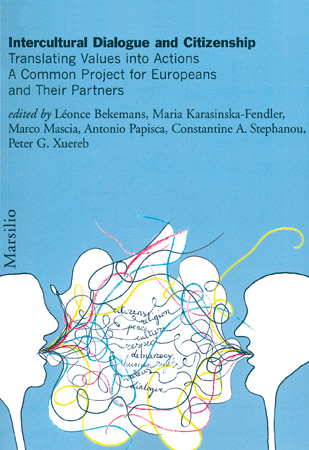Raccolte

The Art of Intercultural Dialogue
Enrique Banús (2007)
- Contenuto in
- Intercultural Dialogue and Citizenship
- Tipologia pubblicazione
- Articolo / Saggio
- Pagine
- 101-112
- Lingua
- EN
Enthusiasm for intercultural dialogue is given: conferences and symposia praise it as a key concept for the pacific coexistence in societies which are becoming more and more multicultural and in a globalising world.
But intercultural dialogue, if it shall be effective, has to be held «on the street», by the «common» citizen, who is experiencing alterity in his/her daily life and who has to react seeing in it not a problem or a threat but an enrichment.
It has not to be forgotten that intercultural dialogue supposes a change of paradigm: in fact, we are used to experiencing/confirming «our» (collective) identity in antagonism to «the other». Moreover, the view we have of «the other» is marked by images and stereotypes, which makes difficult the open encounter. In a certain sense, intercultural dialogue is an art which has to be learned. Therefore, education to intercultural dialogue plays a very relevant role.

